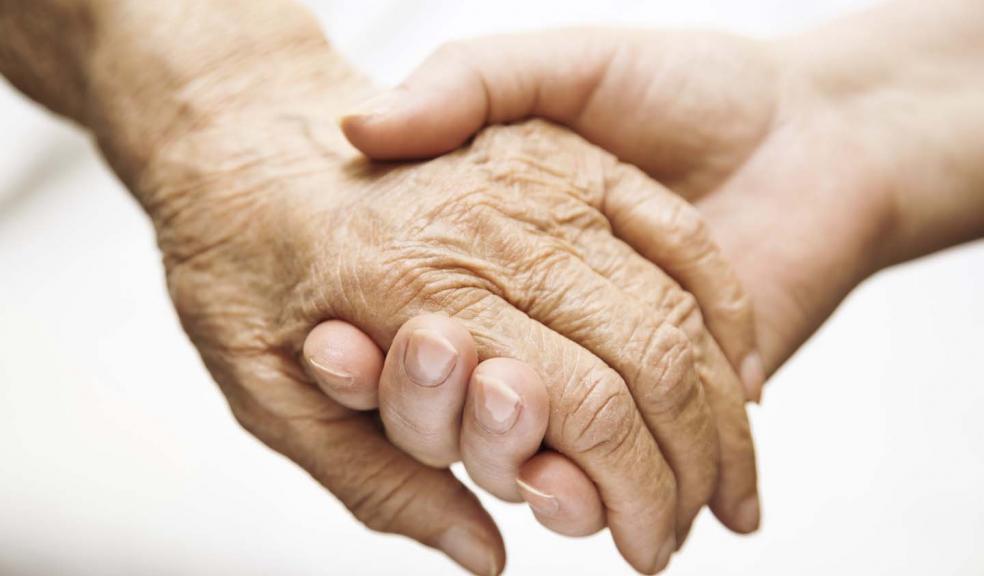
Hospital ‘one of the most scariest places to be’ for people with Parkinson’s
People with Parkinson’s are being subjected to ‘frustrating and scandalous’ standards of care in hospital new research from Parkinson’s UK has revealed.
From being forced to smuggle in medication to being subjected to shocking levels of drug deprivation by hospital staff, data commissioned to time with the launch of Parkinson’s Awareness Week paints a deeply disturbing picture of life in hospital for those with the degenerative condition – with almost half (46 per cent) of people with Parkinson’s denied regular access to the medication they need to keep their Parkinson’s under control.
Medication is a lifeline for people with Parkinson’s, with some people taking in excess of ten tablets a day as part of a strict regime just to be able to move or communicate with those around them. Half (50 per cent) of those who did not have regular access to medication in hospital felt there was a significant impact on their health.
Far from being isolated incidents, more than seven in ten (73 per cent) of people with Parkinson’s reported experiencing increased levels of anxiety whilst in hospital because of the difficulties around getting their medication.
Understanding of hospital staff about the condition remains woefully inadequate; with almost four in ten (37 per cent) of people with Parkinson’s reporting that hospital staff had a poor understanding of the importance of giving medication for the condition on time – which can lead to catastrophic consequences.
Worryingly, the research also revealed that more than a third (37 per cent) of those who were unable to take their own medication found hospital staff were unhelpful in making sure medication was given on time, resulting in almost seven in ten (68 per cent) people feeling more anxious at the prospect of having to go into hospital again in the future.
Steve Ford, Chief Executive at Parkinson’s UK, explains: “Our research confirms that hospital – where people with Parkinson’s should feel safest – can actually be the most dangerous place for them to be.
“Being admitted in hospital can be difficult enough, but when that is coupled with the fear and uncertainty of being deprived of your drugs – it can become unbearable.
“Time and again people tell us that they leave hospital with their Parkinson’s in a far worse state than when they went in. Nurses tell us they receive an hour, at most, of specialised Parkinson’s training and this fundamental lack of education has resulted in people with the condition being so terrified by their previous experiences in hospital that they use their wash bags to smuggle in their medication.”
Marion Rogers, from Redruth, witnessed first-hand the devastating effect the lack of medication had on her father John during three separate hospital stays.
She said: “When Dad first went into hospital, his Parkinson’s was totally under control. He could walk and shower independently. The staff assured me they had received training on how to care for someone with Parkinson’s, but it soon became obvious he wasn’t getting his medication on time.
“The change in him was so quick, within 24 hours he became aggressive – which he’d never done before – and said he wanted to leave, he had frightening hallucinations, he was really scared. We eventually refused to allow him to go into hospital and decided to care for him at home instead, because we could at least make sure his Parkinson’s was under control.
“His last visits to hospital were made so much worse by not getting his medication on time. Something desperately needs to be done to change things for people with Parkinson’s in hospital so that no one else has to endure what my Dad went through.”
Steve Ford continued: “One of the ways for the NHS to tackle this growing problem is to allow people with Parkinson’s to take their medication themselves – in fact around 70 per cent of hospitals and health boards across the UK have a system in place that would allow people with Parkinson’s to do just that**, yet it is clear that these processes simply aren’t being implemented.
“Taking medication on time can often feel like the last bit of control that people with Parkinson’s have over their condition. Contrary to popular belief Parkinson’s doesn’t just makes a person’s hands or arms shake, but there are a myriad of other severe symptoms that leave people feeling powerless over their own bodies and, ultimately, their lives.
“For people with Parkinson’s to continue to fight such titanic battles just to get their medication in hospital is plainly wrong. We hope that our campaign will equip all hospital staff with the right knowledge to deliver the improvements in care people with Parkinson’s so desperately need.”
Throughout Parkinson’s Awareness Week (7-13 April), Parkinson’s UK are urging hospitals across the UK to work with them to help put people with Parkinson’s back in control of their condition, by arming themselves with basic information about the importance of medication and taking advantage of the free education and resources open to them.











